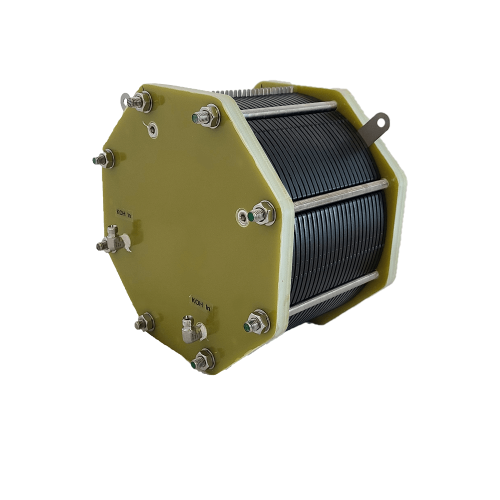
Alkaline electrolysers are a type of electrochemical device that uses an alkaline solution (usually potassium hydroxide or sodium hydroxide) as the electrolyte to split water into hydrogen and oxygen gas. Here are some advantages of alkaline electrolysers:
- High Efficiency: Alkaline electrolyzers have high conversion efficiency, which means that they can efficiently convert electrical energy into hydrogen gas. This is because the alkaline electrolyte used in these devices has a high electrical conductivity and low resistance, resulting in low energy losses during the electrolysis process.
- Low Cost: Alkaline electrolyzers are relatively simple and low-cost devices compared to other types of electrolyzers. The materials used in these devices are inexpensive and readily available, which makes them more affordable to manufacture and maintain.
- Durability: Alkaline electrolyzers are highly durable and can operate continuously for long periods of time without significant degradation. This is because the alkaline electrolyte used in these devices is non-corrosive and has a low impact on the electrodes, which reduces the likelihood of electrode damage.
- High Hydrogen Purity: Alkaline electrolyzers produce high-purity hydrogen gas, which is suitable for use in a wide range of applications, including fuel cells and other industrial processes.
- Scalability: Alkaline electrolyzers are highly scalable and can be used to produce hydrogen gas at a wide range of output capacities, from small laboratory-scale units to large industrial-scale systems.
Overall, alkaline electrolysers offer a range of advantages that make them a promising technology for large-scale hydrogen production and energy storage applications.